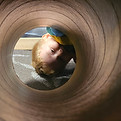
Parenting Resources
Parenting is one of the most rewarding and challenging jobs in the world. At The Nest Community School, we understand the joys and struggles that come with nurturing young children. Every parent wants to provide the best for their child, but navigating the complexities of development, behavior, and family dynamics can feel overwhelming at times.
That’s why we’ve created this collection of resources—to provide you with the tools, knowledge, and support you need to feel confident and empowered in your parenting journey. Below, you’ll find a range of helpful materials designed to meet the needs of busy families. From expert tips on social-emotional growth to creative ways to encourage learning at home, these resources are here to inspire and guide you through the many stages of early childhood.
Take your time exploring, and remember, you’re not alone—we’re here to partner with you every step of the way. Let’s work together to nurture your child’s growth and create a strong foundation for their future.
Aggression
(hitting, kicking, biting)
Boundaries and Limit Setting
Dysregulation and Tantrums
Independence Skills
Play-Based Learning at Home
Sibling Dynamics
Anxiety and Shyness
Communication and Speech
Emotional Learning and Regulation Skills
Mealtime Challenges and Nutrition
Potty Training Tips
Sleep
Attachment and Bonding
Developmental Milestones
Executive Functioning Skills
Mindfulness for Children and Families
Routines
Transitions (Navigating new siblings, school, moving, loss etc.)
Agression
Aggressive behaviors, such as hitting, biting, or pushing, are a normal part of development for many young children. These behaviors often emerge as children navigate big emotions, social interactions, and developing communication skills. Young children may not yet have the tools to express frustration, fear, or a desire for autonomy in appropriate ways, which can lead to these challenging moments.
It's important to approach these behaviors with empathy and understanding. Aggression is rarely about intentional harm; instead, it often signals a child’s difficulty in regulating emotions, understanding boundaries, or expressing needs. At this stage of development, children rely on the adults around them to help teach these essential skills.
Addressing aggressive behaviors quickly and consistently is critical. Clear, gentle boundaries provide children with the structure they need to feel safe and secure, while consistent responses help them learn what is acceptable and how to navigate their emotions more effectively. Intervening early also minimizes the risk of these behaviors becoming ingrained patterns and ensures that all children feel safe and supported in their environment.
By working together—parents, caregivers, and educators—we can guide children through these moments with patience and compassion, teaching them important skills for emotional regulation, conflict resolution, and empathy. Remember, these behaviors are part of their growth, and with consistent guidance, children will learn to express themselves in more positive and constructive ways.
Attachment and Bonding
Coming soon


Boundaries and Limits
coming soon
Communication and Speech
coming soon


Developmental Milestones
coming soon

Dysregulation and Tantrums
coming soon

Emotional Regulation
coming soon

Executive Functioning
coming soon

Independence Skills
coming soon

Mealtimes and Nutrition
coming soon

Mindfulness
coming soon

Play Based Learning
coming soon

Potty Training
coming soon

Routines
coming soon

Sibling Dynamics
coming soon

Sleep
coming soon

Transitions
coming soon











.jpg)





